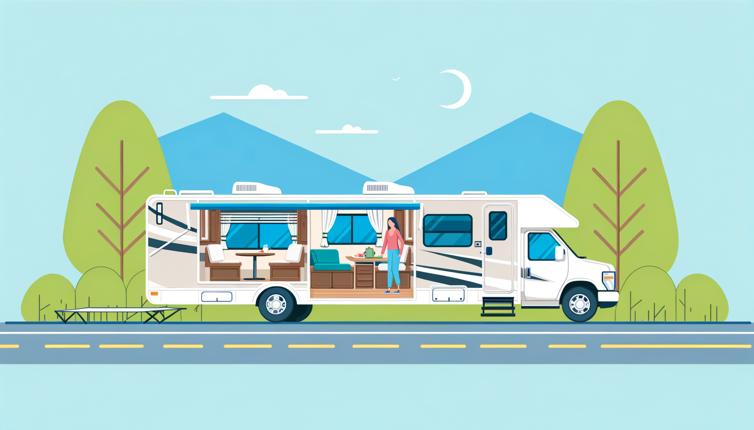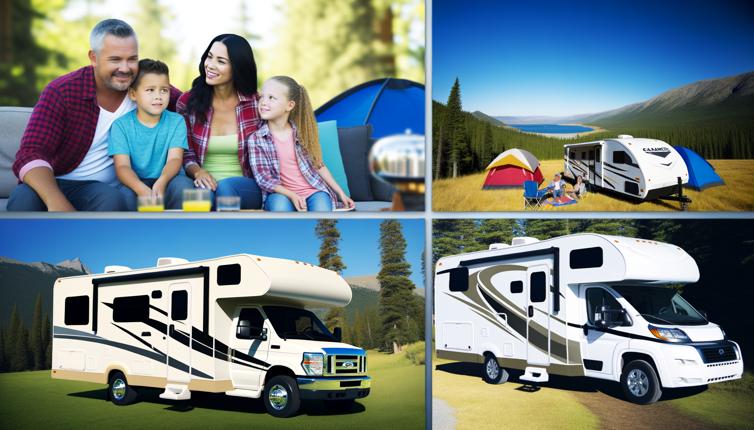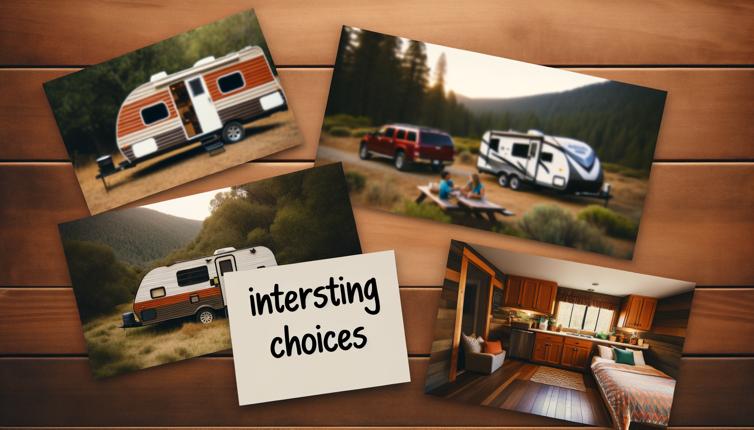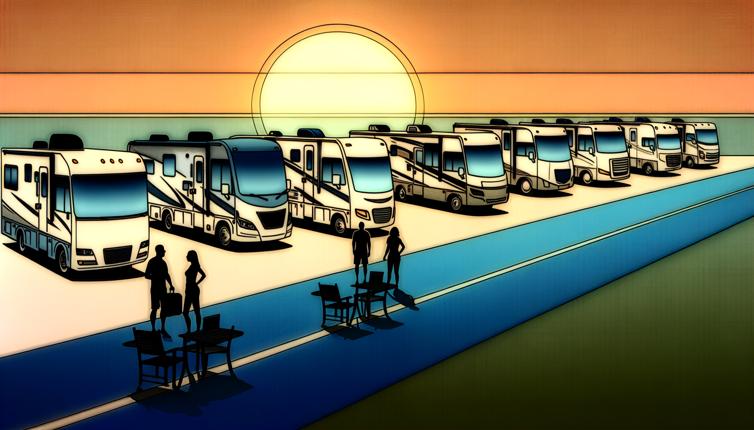Factors to Consider
Number of people traveling: The number of people that will be staying in the RV will play a significant role in determining the size you need. If you have a large family or plan to travel with a group of friends, you will need a larger RV with more sleeping spaces and seating areas.,Type of travel: Consider the type of travel you will be doing. If you plan to stay in RV parks or campgrounds with full hookups, you can choose a larger RV with all the amenities. However, if you prefer boondocking or dry camping, a smaller RV with a more basic setup might be more suitable.,Length of travel: The duration of your trip will also affect your RV size choice. If you're planning a short weekend getaway, a smaller RV might be sufficient. However, for longer trips or full-time RV living, a larger RV with more storage and living space would be more comfortable.,Budget: Your budget is an important consideration when selecting an RV size. Larger RVs tend to be more expensive both in terms of upfront cost and ongoing maintenance. Make sure to factor in not only the purchase price but also fuel expenses, campground fees, and maintenance costs before making your decision.,Driving experience: If you're new to RVing or have limited experience driving larger vehicles, you might feel more comfortable with a smaller RV. Maneuvering a large RV can be challenging, especially in tight spaces or on narrow roads.,Storage needs: Consider your storage needs when choosing an RV size. Do you plan to bring bikes, kayaks, or other outdoor gear? Will you need space for extra supplies or equipment? Make sure to assess your storage requirements and choose an RV with adequate storage options.,Layout preferences: RVs come in various layouts, including Class A, Class B, Class C, travel trailers, and fifth wheels. Each type has its own advantages and disadvantages in terms of space, maneuverability, and comfort. Research the different types and choose the one that best fits your preferences and needs.
Size Options
Class A Motorhomes: These are the largest RVs, often resembling buses. They offer plenty of space and amenities, including multiple bedrooms, full kitchens, and spacious living areas. Class A motorhomes are great for large families or those who want a luxury RV experience. However, they can be challenging to maneuver and require more fuel.,Class B Motorhomes: Also known as camper vans, Class B motorhomes are smaller and offer better maneuverability. They are a good option for solo travelers or couples who don't need a lot of space. Class B motorhomes typically have a kitchenette, a bed, and a small bathroom.,Class C Motorhomes: Class C motorhomes are smaller than Class A but larger than Class B. They are built on a truck chassis and usually have a sleeping area above the cab. Class C motorhomes are versatile and suitable for families or small groups. They offer more space than Class B but are still easy to drive.,Travel Trailers: Travel trailers come in various sizes, from compact options to large models with multiple slide-outs. They are towed by a separate vehicle and offer flexibility in terms of choosing your tow vehicle. Travel trailers are a popular choice for those who already own a truck or SUV capable of towing.,Fifth Wheels: Fifth wheels are similar to travel trailers but are designed to be towed by a pickup truck with a specialized hitch. They often have multiple levels, providing more interior space. Fifth wheels are a good option for those who want a spacious living area and don't mind the additional towing setup.,Popup Campers: Popup campers, also known as tent trailers, are the smallest and most lightweight RV option. They are compact and easy to tow, making them suitable for those who want a simple camping experience without sacrificing comfort.,Toy Haulers: If you plan to bring recreational vehicles or other large equipment, a toy hauler might be the right choice for you. Toy haulers have a garage area at the back where you can store and transport motorcycles, ATVs, or bikes. They often have foldable beds or living areas in the garage space.
Benefits of Choosing the Right Size
Comfort: Selecting the right RV size ensures that you have enough space for everyone to sleep, eat, and relax comfortably. It minimizes the need to squeeze or convert sleeping areas during the night, providing a more restful experience.,Efficiency: A properly sized RV is more fuel-efficient and easier to handle on the road. Smaller RVs generally have better gas mileage and can navigate narrow roads, tight corners, and small parking spaces more easily.,Cost savings: Choosing the right size RV can save you money both upfront and in the long run. Smaller RVs are generally more affordable to purchase and maintain. They also consume less fuel and require smaller campsites, reducing accommodation costs.,Flexibility: Having an RV that matches your travel plans and storage needs gives you the flexibility to explore various destinations and campgrounds. It allows you to camp comfortably in RV parks with full hookups or venture off-grid for boondocking.,Peace of mind: When you have the right RV size, you can travel with confidence, knowing that you have the necessary space and amenities for a successful trip. It eliminates the stress and discomfort that can come from choosing the wrong size or type of RV.
Conclusion
Selecting the right RV size is crucial for maximizing comfort and efficiency during your camping or road trip adventures. Consider factors such as the number of people traveling, type of travel, length of travel, budget, driving experience, storage needs, and layout preferences. Choose from various RV options, including Class A, Class B, Class C, travel trailers, fifth wheels, popup campers, and toy haulers. Benefits of selecting the right size include increased comfort, improved fuel efficiency, cost savings, flexibility, and peace of mind. Take the time to research and evaluate your needs to ensure a memorable and enjoyable RV experience.









